- Home
- Kay Hooper
Blood Dreams Page 4
Blood Dreams Read online
Page 4
“We didn’t find either.”
“Not so far. Maybe that was his personal toy and he didn’t want to leave it behind.”
“Yeah. Yeah, maybe.”
“There were a couple hairs in that cut as well, not obvious because of the gore. Too bloody to make out the color now, but, well, once we get back to the lab, at least we’ll know a bit more about her. Again, I’m no profiler, but I think he probably didn’t mean to leave any hair at all, so the little we found may turn out to be important.”
Purcell stared rather fixedly at the end of the diving board over the red-tinted pool, where the heart of a murdered woman still lay, and Shorty thought he was holding on to his mad with both hands and a hellacious willpower.
“The fingertip,” the sheriff said at last. “Enough for a print?”
“It’s enough.”
“Good. Get me that print, Shorty. And every other bit of information you can, including your own theories and suppositions. I even want to hear your guesses. Understood?”
Shorty didn’t bother with a verbal okay, just nodded and moved a bit quicker than was normal for him to get back to doing his job. Mad made a dandy shield, he thought, but Marc Purcell’s mad was beginning to smolder.
He didn’t want to be close when it finally exploded.
She knew.
Marc wondered if this was what Dani had dreamed, and hoped to hell it wasn’t. Not this.
But she had known something bad would happen, or had already happened, and this was about as bad as Marc ever wanted to see.
Except that he had a leaden feeling in the pit of his stomach that told him this was just the beginning, that things were going to get a lot worse before they got better. Dani had looked worried, which was unusual enough; she didn’t give away much and never had. But, even more, he had felt her anxiety, like a jolt to the gut, and the sudden reawakening of that old connection had caught him off guard.
So off guard that he had said more than he’d intended to about his own feelings.
“Marc? Sorry about that.” Jordan sounded as queasy as he looked, his complexion pasty and his eyes sick. “But I just don’t think—”
“Go back to the station,” Marc told him, pushing aside everything but the job he had to do. “Check if we have prints on either Bob Norvell’s wife, Karen, or the Huntley girl, Becky. If we don’t have them on file, send a couple of teams with kits to their homes and get them there.”
If anything, Jordan looked sicker. “The families are bound to ask why. What do I say to them?”
Marc didn’t hesitate. “That we need all the information we can get to find missing persons, and prints are more valuable than photos in some cases.” This time he did hesitate, before adding steadily, “Tell the teams to find something with DNA. Hairbrush, razor, toothbrush, whatever might give us what we need. And tell them to be subtle about it.”
“So we don’t tell the families about…this?”
“Not until we know something for sure. Until then, I want this kept as quiet as possible, Jordan, understand? Anybody talks to the media is going to be looking for a new job tomorrow, and it won’t be with a reference.”
“I understand, Marc, and so will the rest here. But you know as well as I do that we won’t keep it quiet for long.”
“As long as we can.” His cell phone rang, and he answered it before the second ring. “Yeah?”
“Marc, it’s Dani. I know you’re busy, but—”
“You know where I am? What I’m looking at?” Marc realized that his voice was too harsh, but there didn’t seem to be anything he could do about it.
The silence on the other end of the line was brief, and then she said quietly, “I know. There are some people you need to meet. Here, at Paris’s house. Can you come?”
“I’m on my way,” Marc said.
4
HE HAD TO CUT HER image from another photograph because the first one got all crumpled, but that was okay.
He always made copies.
With some of his tension eased, the jagged edge of his need blunted, he was able to carefully remove all the uninteresting bits from the picture, leaving only her.
He set her aside and reached for the next picture, this time cutting her out from the background of a gas station where she’d been standing by her car, pumping gas.
The next was of her walking a dog in the park. He debated but in the end cut the dog out as well.
Huh. He hadn’t really thought about dogs, but—
His mind shied, and he frowned to himself. No, not dogs. Not animals.
She didn’t even like animals. Could never bear to have them in the yard, much less in the house. Dirty things.
“Dirty, dirty things!”
“No. Not dogs. Not animals. They don’t matter.”
He cut the dog from the shot and dropped it in his trash can.
Just her, then.
Just her.
He worked steadily through the stack of photos until he’d done them all, cutting her meticulously from each shot and tossing the remainder of each photo into the trash.
When he was done, he gently gathered up the pictures of her and carried them into the next room.
The room was large, and the thick concrete walls made it both chilly and something of an echo chamber. He enjoyed both attributes, though his recent work had diminished the echo effect at least a bit.
There was a bright spotlight beaming down onto a stainless-steel table in the center of the room, but he ignored that for the moment. Instead, he went to one of the walls, where a long strip of halogen track lighting on one of the beams above provided smaller spotlights, which were carefully aimed and focused on the precise geometric arrangement of squares of corkboard that lined the entire long wall from concrete floor to open-beamed ceiling.
Everything lined up perfectly.
He had used a laser level. Nifty thing, very helpful.
Each square of corkboard was two feet by two feet, and each was framed by a thick line of black paint that served to separate it from the adjoining squares. Three of the squares were nearly filled with cutouts of women, each individual woman getting her own square, and no two of the squares side by side or even near each other.
“We live alone,” he murmured. “We die alone.”
He stood back for a moment, then chose a square near the center of the room, again making sure it was isolated from the others. He pulled a wheeled stainless-steel work cart nearer the square, placed his pictures carefully on the shiny surface, and opened a waiting plastic box holding white pushpins.
It took him at least fifteen minutes to place the pictures carefully, to pin them onto the corkboard. He left space, of course, for other pictures. There would be others.
These pictures came first. The hunting.
And then her.
And then pictures of her metamorphosis would join the others on her board. Until at last it was complete. Until she was complete.
He turned finally from his display wall and went to the center of the room, and to the table.
She was secure, of course. He was always careful about that. And the drugs had done their work; she was only now coming out of it, eyes fluttering, trying to focus.
He waited until they did, until she saw him. Watched those eyes widen and grow terrified.
He smiled down at her.
“Hello, sweetheart. We’re going to have so much fun.”
5
EVEN WITH DAYLIGHT savings time still in effect, the sun was going down and the air had grown decidedly chillier by the time Marc pulled his unmarked cruiser into the driveway of Paris Kincaid’s rehabbed farmhouse on the edge of town. He assumed Paris’s BMW was in the garage, since he didn’t see it and since she was known to be finicky about leaving it out in the weather.
Dani’s Jeep was in the drive ahead of Marc’s cruiser. And parked beside it was an innocuous black SUV.
Innocuous, my ass. Why not just use plates that say FED?
Sta
ndard Georgia license plates or not, Marc knew a federal vehicle when he was staring at one.
And because he didn’t really want to think about why federal agents would be here now, on this particular day, unsummoned and, please God, unneeded, he chose to focus instead on the irritatingly neon choice of vehicle.
Even with all the SUVs on the road, there was just something about this one that screamed out what it was. Way too obvious for his taste. Marc never wore a uniform, did not carry his weapon openly if he could avoid it, and had made certain his “unmarked” cruiser looked more like a businessman’s nice car than one belonging to a law-enforcement official.
He didn’t like to be all that visible while he kept an eye on his town; his might be a political position in some minds, but not in his, and he probably knew more about what went on in Venture than any sheriff before him could have claimed.
Not that it was always a pleasure to be so well informed.
Like now. Knowing that at least one citizen of Venture had died horribly and they had so far found only pieces of her made his stomach churn in a way his chief deputy would have recognized. The difference was that Jordan could get physically sick and pretty much rid himself of the poisons—and sleep like a baby tonight.
Marc would be having nightmares for weeks.
Assuming he could even sleep.
Dani met him on the front porch, her face pale and drawn, the earlier worry now even more obvious. “I’m sorry,” she said immediately. “When we talked before, in town, I didn’t know.”
“You knew something.” It wasn’t—quite—an accusation.
“Something. But not that. What I knew—what I know or think I know—hasn’t happened yet.”
Marc considered that briefly, then shrugged it off to be dealt with later. Right now he had to be concerned with what had happened, not what might. “When you called a few minutes ago, you knew.”
“Because somebody told me. Come in, Marc. There are people here you need to meet.”
Feds. But why come like this? Why so…unofficially? He didn’t budge. “So you said. What people?”
Dani didn’t seem surprised or put out by his stubbornness, and answered readily. “John Garrett, for one. You’ve probably heard of him.”
“I’ve heard he’s a very wealthy man and a very powerful one. I don’t know what the hell he’d be doing in Venture.”
“He’s also a good man, trying to make a difference. He and his wife, Maggie, run the…company Paris and I work for. You know about Haven?”
“I know it’s not federal.”
“No. Privately run.”
“I don’t know much more than that. I knew Paris traveled some for work, but far as I can recall she never said much about her job, other than mentioning the name one day in passing. She did seem to have very flexible hours and workdays.”
“I guess people have noticed that,” Dani murmured.
“When you’re gone for a week and then don’t seem to work again for a month or more, yeah, people do notice. Honestly, though, most assumed, at least this last year or so, that Paris was still being supported by her ex.”
“Damn. She’ll hate that if she finds out.”
“I’d be real surprised if she didn’t already know. The gossip in Venture is hardly a furtive thing; it’s a recreational activity. Want me to tell you how many cities Dan’s job has taken him to in the last year? I understand there was some betting as to whether he and Paris met up at least twice for reconciliation attempts.”
“I hope you bet against that.”
“As a matter of fact, I did.” Quite deliberately, he added, “I’m a bit better than the average Venture citizen at reading the Justice twins.”
For an instant he thought she would challenge him on that point, but in the end Dani pushed it aside with a gesture. “But the town doesn’t know much about Haven. Do you know any more than that?”
“I admit I got curious. Asked around. Police scuttlebutt says it’s a civilian organization of mavericks, supposedly psychics, people just barely this side of the lunatic fringe.”
“Thanks a lot.”
“I’m just telling you what I’ve heard.”
Despite her words, Dani didn’t appear to be offended, and just nodded. “Okay. What else have you heard?”
“That the services Haven offers run the gamut from advising on police cases and running independent investigations of things like insurance fraud to going undercover in big companies to find evidence of industrial and corporate espionage. And that you guys will investigate just about anything—for a price.”
Half under her breath, Dani said, “John was right. We need to work on our image.”
“Does the scuttlebutt have it wrong?”
“The bare bones of it, no. We are mostly psychic, varying abilities and degrees of strength and control. A lot of us are…a bit out of the norm even among psychics, with abilities you won’t find named in any of the reference books. We have extremely flexible hours because each of us has an ability that may be useful to a particular case or investigation but certainly not all of them. Paris and me…well, you of all people must know that what we can do wouldn’t be all that handy in investigating anything under ordinary circumstances.”
“Considering you’re precognitive only when dreaming, and Paris’s abilities barely register unless you two team up, yeah, I can see how that could be a drawback in using the abilities as tools.”
“Exactly.”
“And yet you get work.”
She nodded. “You’d be surprised how many extraordinary circumstances there are. Or maybe you wouldn’t be. I was.”
Instead of asking about particulars, Marc said, “Was the gossip right about what Haven offers?”
“We do advise and investigate. Work with police as well as private companies and individuals. We do go undercover, if the situation calls for it.”
“Services for sale to the highest bidder?”
She shook her head. “No, that part’s wrong. Really wrong. Look, do you know about the FBI’s Special Crimes Unit?”
Ahhhh.
The presence of the federal vehicle in Paris’s driveway now began to make sense—though he was still suspicious of and very much worried about the timing.
“I’ve heard of it,” Marc replied. “Gained a rep in the last few years for solid police work and a very high solved-case percentage. Also considered by local law enforcement wherever they’ve worked to be trustworthy, because they do what they say they do—advise and aid, not take over. And they don’t want the credit, not publicly. In fact, they stay as far out of the spotlight as they can get.”
“Haven is basically a civilian offshoot of the SCU. John Garrett has a good friend in the unit, and there was an investigation he became a part of—and one thing led to another. The idea for a civilian organization made sense, if only to make use of talent going to waste. In putting together the unit, its chief had located any number of strong psychics who just weren’t suited to be cops, federal or any other kind.”
“Mavericks?”
Dani began to shake her head, then shrugged. “Some, sure. People who don’t like rules, who don’t…play well with others. Emotional baggage is probably the norm rather than the exception, and that can get in the way, more for some than others. I mean, using psychic abilities can look a lot like conning somebody, and plenty of us have had bad experiences with the police. Plus, just being psychic seems to make some of us…fragile. Difficult to work with, or at least unable to work within certain rigid structures such as law enforcement.”
“So you work outside the law.”
“We’re not crooks or con artists, Marc.”
“No?”
“No.” She let out a little breath, and added, “I didn’t think I’d have to convince you. Not you.”
“Convince me of what, Dani? That psychic ability is real? We both know I’m in the believer’s camp on that one. That doesn’t mean I can automatically agree that mixing unstable
psychics with a killer who has to be the poster boy for unstable is a good idea.”
She flinched visibly. “Miranda said it was bad, but—”
“Who’s Miranda? A fed or part of Haven?”
“She’s SCU. Her husband, Noah Bishop, created the Special Crimes Unit, fought for it, recruited the right people. He’s officially the unit chief, but they run it together. They share…a unique connection. Come inside, Marc. Listen to what we have to tell you.”
He still didn’t budge. “I don’t recall asking for help.”
Dani hesitated, then said steadily, “I think most sheriffs in your position would wait. Investigate this one murder as a single murder. And then the next one. And maybe, before the third one or just after, he’d realize he had a serial killer on his hands. That’s when he’d ask for help. And by then it would be too late.”
“Most sheriffs.”
“Yes. But not you.”
“Because?”
“Because it’s not about ego with you, it’s about justice. Because you have a better sense than most that there are dark forces all around us—all the time. And because what you saw today was only the tip of the iceberg, and that’s something you feel. Something you know deep inside yourself.”
“Dani—”
“It’s evil, Marc. What’s underneath the surface you saw today is pure, raw evil. Something no amount of conventional police work can even begin to handle.”
She drew a breath and added, “And you know it.”
Jordan Swain, in addition to priding himself on his good looks, also prided himself on the fact that he was a good cop. He hadn’t joined the sheriff’s department just because it was better than a job selling insurance or real estate or something.
He genuinely wanted to help people.
Until now, he had cruised along his career path pretty much as planned.

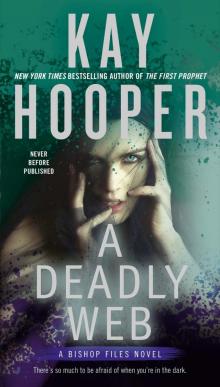 A Deadly Web
A Deadly Web Raven on the Wing
Raven on the Wing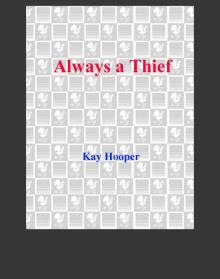 Always a Thief
Always a Thief Star-Crossed Lovers
Star-Crossed Lovers Blood Dreams
Blood Dreams Shades of Gray
Shades of Gray Rebel Waltz
Rebel Waltz Chill of Fear
Chill of Fear Sleeping With Fear
Sleeping With Fear After Caroline
After Caroline Time After Time
Time After Time Haunting Rachel
Haunting Rachel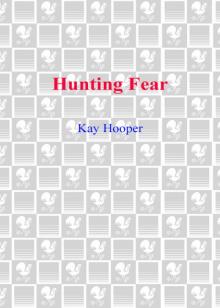 Hunting Fear
Hunting Fear Out of the Shadows
Out of the Shadows Whisper of Evil
Whisper of Evil Blood Sins
Blood Sins Hiding in the Shadows
Hiding in the Shadows C.J.'s Fate C.J.'s Fate C.J.'s Fate
C.J.'s Fate C.J.'s Fate C.J.'s Fate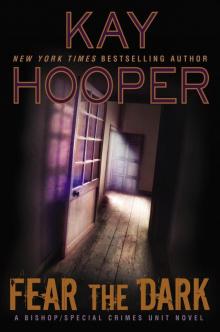 Fear the Dark
Fear the Dark Illegal Possession
Illegal Possession Stealing Shadows
Stealing Shadows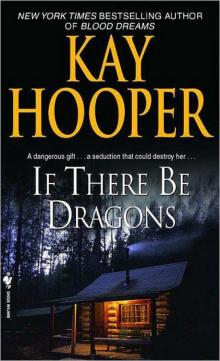 If There Be Dragons
If There Be Dragons Once a Thief
Once a Thief In Serena's Web
In Serena's Web On Wings of Magic on Wings of Magic
On Wings of Magic on Wings of Magic Hostage
Hostage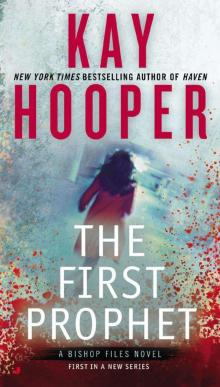 The First Prophet
The First Prophet Through the Looking Glass
Through the Looking Glass Golden Flames
Golden Flames Finding Laura
Finding Laura Haven
Haven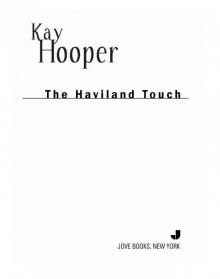 The Haviland Touch
The Haviland Touch The Lady and the Lion
The Lady and the Lion Haunted
Haunted Velvet Ligntning
Velvet Ligntning Blood Ties
Blood Ties Adelaide, the Enchantress
Adelaide, the Enchantress The Matchmaker
The Matchmaker Golden Threads
Golden Threads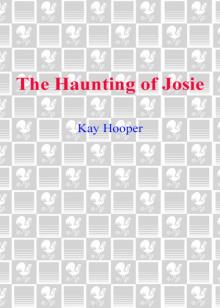 The Haunting of Josie
The Haunting of Josie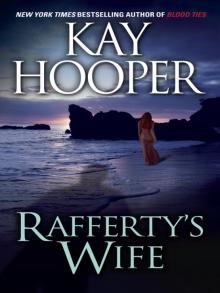 Rafferty's Wife
Rafferty's Wife Amanda
Amanda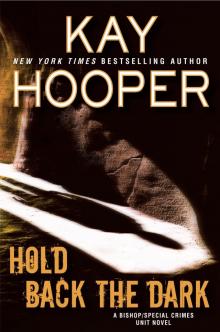 Hold Back the Dark
Hold Back the Dark Sense of Evil
Sense of Evil What Dreams May Come
What Dreams May Come Larger Than Life
Larger Than Life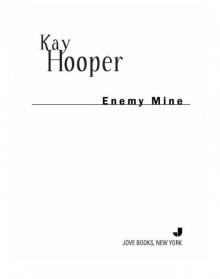 Enemy Mine
Enemy Mine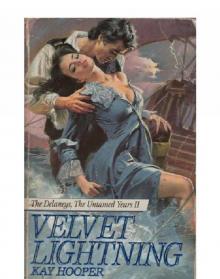 Velvet Lightning
Velvet Lightning The Fall of Lucas Kendrick
The Fall of Lucas Kendrick Aces High
Aces High Captain's Paradise: A Novel
Captain's Paradise: A Novel The Wizard of Seattle
The Wizard of Seattle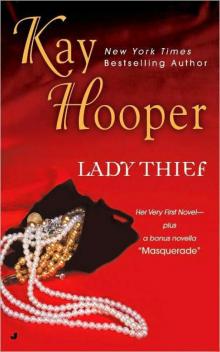 Lady Thief
Lady Thief Summer of the Unicorn
Summer of the Unicorn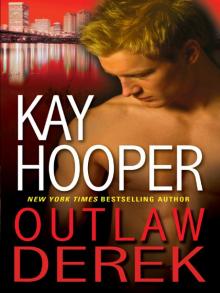 Outlaw Derek
Outlaw Derek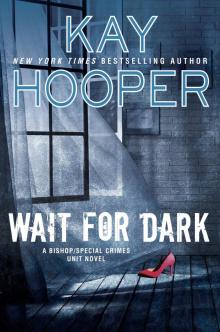 Wait for Dark
Wait for Dark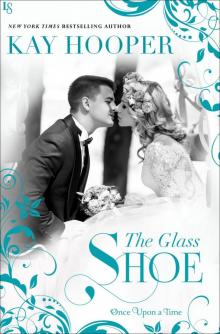 The Glass Shoe
The Glass Shoe It Takes a Thief
It Takes a Thief Zach's Law
Zach's Law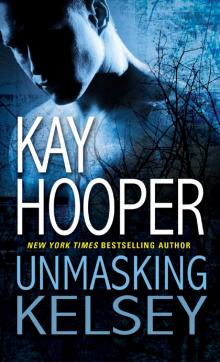 Unmasking Kelsey
Unmasking Kelsey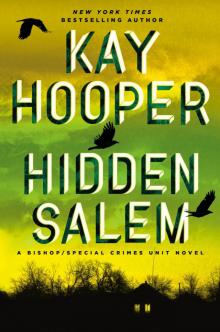 Hidden Salem
Hidden Salem